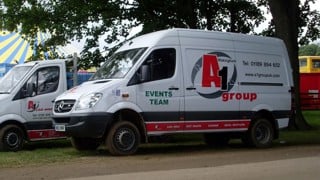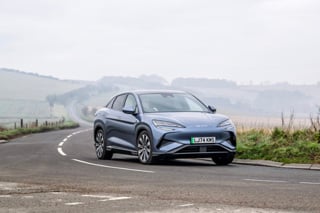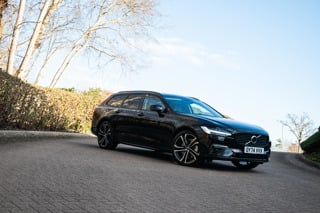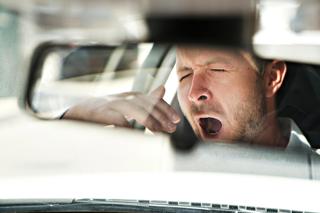The Volvo XC90 is the safest new car in Britain, according to Thatcham Research judging in the What Car awards.
The Honda Jazz and Toyota Avensis were commended as runners up from among a strong 17 car shortlist.
The 2016 Safety Award was judged in conjunction with Thatcham Research, using a set of criteria that combined hard facts with expert opinion.
All of the cars considered for the Award have earned the coveted Euro NCAP five star crash test rating and also have Autonomous Emergency Braking (AEB) standard on at least one model derivative.
“It is a great pleasure to be able to formally recognise Volvo, as well as Honda and Toyota, for the excellent safety performance of their vehicles,” said Thatcham Research chief executive, Peter Shaw.
"As the clear winner of the 2016 What Car? Car of the Year Safety Award, the Volvo XC90 has an outstanding complement of active and passive safety features that affords drivers, passengers and other road users the highest levels of protection currently available.”
Shaw continued: “Like all of the 17 cars in the final reckoning, the Volvo XC90, Honda Jazz and Toyota Avensis gained top ratings in crash testing, but just as importantly they are fitted as standard with Autonomous Emergency Braking (AEB), a technology that Thatcham Research believes is key to reducing crashes and saving lives on British roads.”
Contenders for the 2016 Safety Award were assessed against stringent factors that included adult and child occupant Protection, with pedestrian protection and additional safety innovations including new collision avoidance technologies also considered.
“Cars are safer today at every price point than they have ever been, but there is still much more that consumers and the automotive industry can do to further improve road safety,” said Shaw.
“We believe that advanced safety features like Autonomous Emergency Braking (AEB) should be standard on every new car sold, rather than on just 17% as is currently the case.”
Shaw continued: “When you have the chance for everyone to gain from the inclusion of a life-saving technology that has been shown in studies to reduce the likelihood of a front-to-rear crash by almost 40%, you simply cannot afford to miss the opportunity.”
In conjunction with its call for AEB to be standard on all new cars, the research organisation believes that further action is needed in a number of related areas to ensure that Britain sees the maximum benefit from safety technologies available now, but not fully embraced:
- Consumers and fleet operators should only consider new cars fitted with AEB as standard.
- Car makers should continue to move away from offering individual safety features as options at extra cost, instead making them standard. With research showing that 82% of drivers2 think safety features currently offered as optional extras on a new car should be included as standard, consumers are giving manufacturers a clear mandate to do this.
- The automotive industry should work co-operatively to agree and introduce generic names for safety technologies in place of a variety of different marketing-led names currently used to describe what are essentially the same features. Thatcham favours Automatic Braking as the simplest term for AEB, replacing the likes of City Safety, Active City Stop and City Emergency Braking, an action for which there is strong consumer support: when questioned, 95% of drivers said that vehicle manufacturers should adopt a generic name for AEB.
- “People choosing only AEB-equipped new cars now will not only make our roads safer, it will also send a clear message to car makers about the importance of – and demand for – this technology,” commented Peter Shaw. “We also believe that industry-wide adoption of simple, generic names for individual safety features in place of the many different descriptions currently used by car makers would significantly improve consumer awareness and understanding of live-saving technologies.”
Shaw continued: “Car makers are pioneering new technologies and have worked hard to make a widening range of safety features available on new vehicles and give consumers a base level of knowledge about the technologies. But there is much more that can be done - this is very much a case of vehicle manufacturers helping people to help themselves, by ensuring that the cars they are buying are as safe as they possibly can be.”
None of the award-winning cars are affected by dual NOx and CO2 emissions scandals, because all of them are powered by the latest generation of petrol, diesel and hybrid engines, which have been recertified in recent months.
Jim Holder, editorial director of What Car?, said: “When we began the judging process, the VW emissions scandal was in full swing.
“However, our guiding principle is to recommend the best cars on sale today. We have tested all cars with our unrivalled rigour and scrutiny on a level playing field with all of their rivals.
“Regardless of the scandal, the VW Group still builds cars that rank among the very best on the road and, tested against our criteria covering all of the rational reasons that consumers choose one car over another, the results are clear to see.”



















Login to comment
Comments
No comments have been made yet.